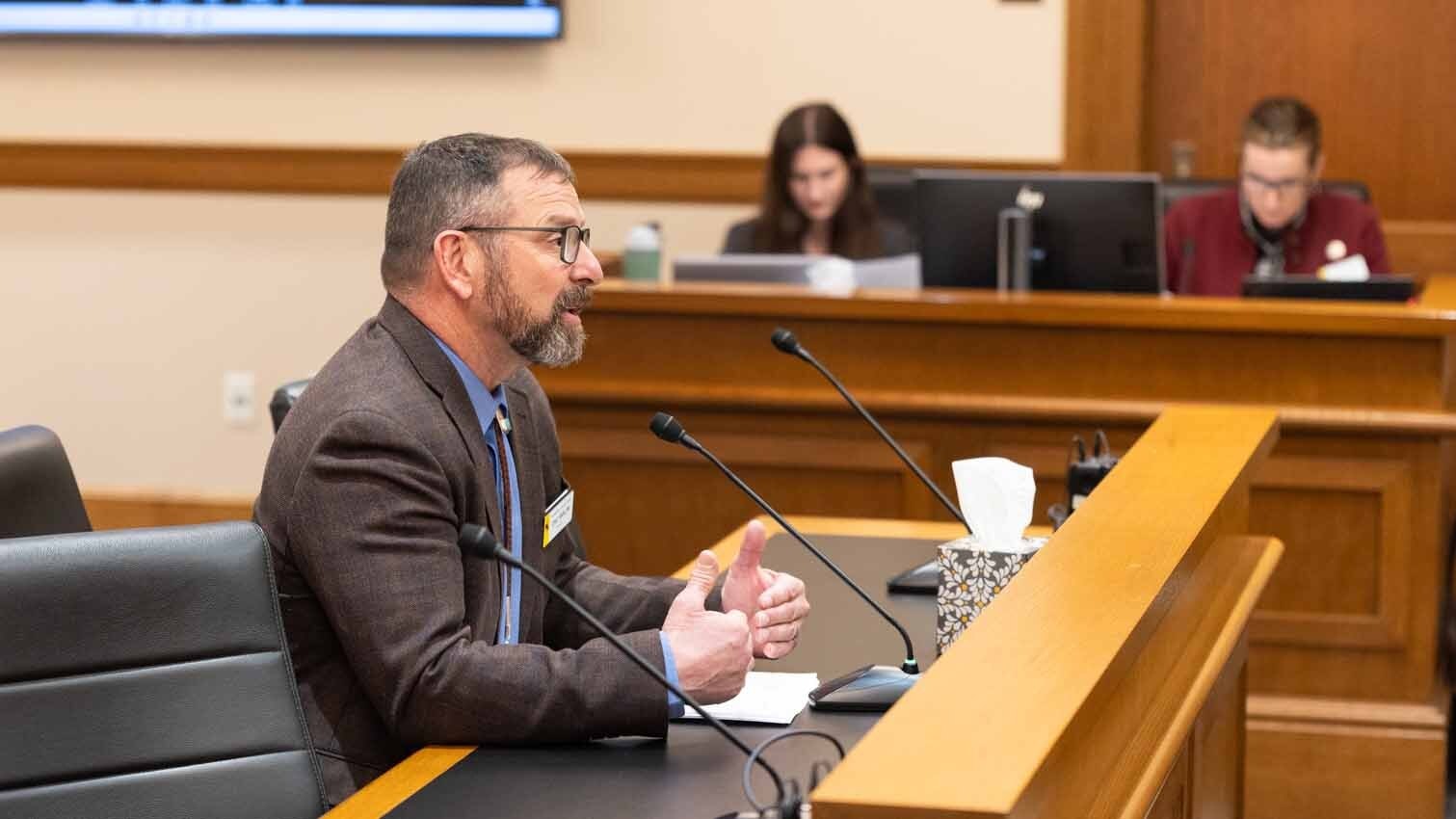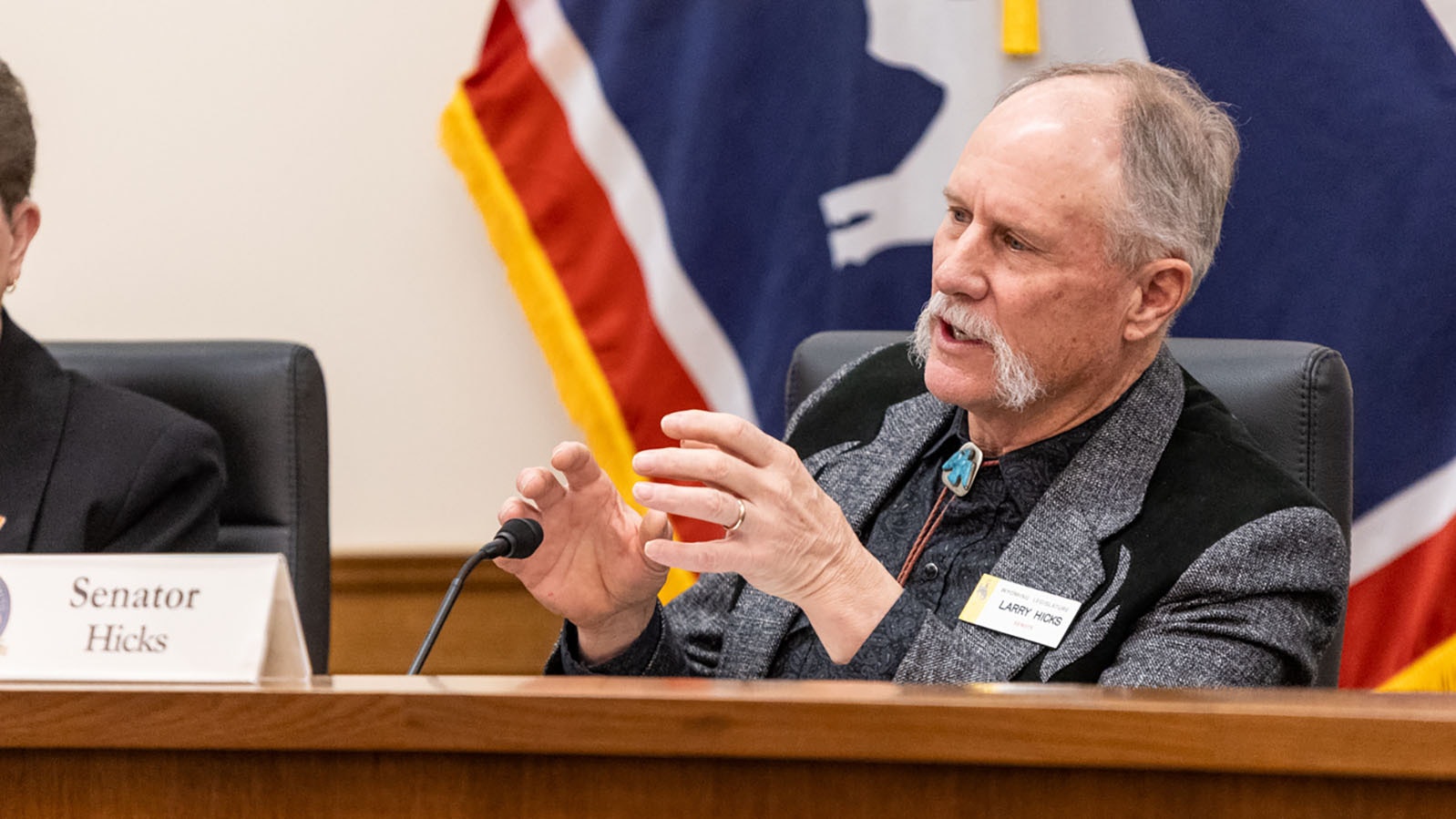WASHINGTON, D.C. — U.S. Rep. Harriet Hageman has assumed a leading role in asserting Congress’s authority to fight crime in the nation’s capital and fix mismanagement by the city’s officials.
At the same time, the Wyoming Republican said it is premature to determine whether she supports a colleague’s bill to abolish D.C.’s municipal government and revert to the system of total federal governance that existed prior to 1973.
That bill, sponsored by U.S. Rep. Andy Ogles, R-Tennessee, has 10 co-sponsors so far.
In a phone interview with Cowboy State Daily on Thursday, Hageman said she has not yet been contacted about signing on to it and is not sure whether she supports it.
“But I’m sure interested in looking at it. I’m sure interested in considering all of our options,” said Hageman, who is the lead sponsor of legislation on how the D.C. Council, the mayor and the local courts operate.
Also in the interview, Hageman said she supports a bill by U.S. Rep. Andy Biggs, R-Arizona, to extend President Donald Trump’s takeover of the local police under emergency powers.
Under the D.C. Home Rule Act of 1973, Trump last month federalized the city police in a unilateral action that is due to expire next week. An act of Congress is needed to extend the authority past 30 days, and the Biggs bill would stretch it out for 150 more days.
“I think that we’re seeing real results,” Hageman said, referencing the huge drop in crimes, especially violent crimes, since Trump’s crackdown. Even the mayor of the overwhelmingly blue city praised the sharp decline.
Head Of Article One Task Force
The District of Columbia owes its existence to Article One of the U.S. Constitution, which also makes clear the federal government controls the district.
The district was run by federally appointed commissioners until the 1973 home rule law that allowed city residents to elect a mayor and council.
Although the Nixon-era law granted D.C. a measure of independence, it left the federal government with final say over all of the city’s affairs, pursuant to the Constitution. That means federal laws can override local ordinances or other local policies, and Hageman is sponsoring such bills.
Hageman belongs to an informal House caucus called the Republican Study Group, and the longtime attorney chairs its Article One Task Force. She has held that position since December 2024 and is ramping up her role with the current bills bearing on D.C.
Her bills include one to speed up the process by which Congress and the president throw out certain local actions.
Another measure targets a recently enacted council policy on meetings. Republicans including U.S. Sen. Mike Lee of Utah, who has an identical bill in the Senate, view the policy as a secretive attempt to get around Trump’s crime crackdown.
A third Hageman bill would prohibit the local courts from deferring to the mayor’s “interpretation of statutes and regulations.”
The importance of Hageman’s bills, she said, hinges not so much on the specifics, but rather, on the broader role she believes Congress must play.
“The point of this is to make sure that Congress is actively asserting its authority and responsibility to oversee the District of Columbia,” she said in Thursday’s interview.
“That was clearly put in the Constitution for a reason,” Hageman said. “Our forefathers did not want the seat of the federal government to belong to, or be in, any particular state.”
Extension Of Emergency?
Besides federalizing the D.C. police last month, Trump put scores of federal law enforcement agents on the city’s streets along with National Guard troops. D.C. Mayor Muriel Bowser praised the drop in crime that resulted.
On Tuesday, Bowser issued an order outlining the city’s continued cooperation with the Trump administration. Some interpreted the order as endorsing an extension of Trump’s takeover of the city police under emergency powers.
Not so, Bowser said Wednesday at a press conference. She said she opposes an extension of the emergency — an extension that the Biggs legislation, backed by Hageman, would authorize.
Bowser said her order “lays out a framework for how we will exit the emergency.”
“The emergency ends Sept. 10. The only way it can be extended legally is by the Congress,” Bowser said.
“So, I want the message to be clear to the Congress: We have a framework to request or use federal resources in our city,” Bowser said. “We don’t need a presidential emergency.”
Hageman On Chicago, Pritzker
Trump, in a wide-ranging press conference Tuesday, applauded Bowser’s cooperation and called attention to Chicago, where shootings over the Labor Day weekend killed eight people and wounded 50.
Trump ramped up the war of words with Illinois Democratic Gov. JB Pritzker, who has led the pushback against Trump’s ongoing talk of sending National Guard troops and swarms of federal agents to Chicago.
Hageman in Thursday’s interview with Cowboy State Daily noted D.C. is a unique jurisdiction because all other American cities are within states.
Still, Trump can clearly send federal agents anywhere. Hageman said officials in Democrat-led, high-crime cities like Chicago should welcome the general principle of D.C.’s police surge.
“I think that [D.C.] could be a model for other cities,” she said. The D.C. police surge “is demonstrating that it actually works to curb crime.”
Hageman said she was struck by an article Wednesday “about why you’ve got people like Pritzker and the mayor of Chicago that are so opposed to our efforts to make the city of Chicago safer.”
“And the commentary that I read was, that part of the reason they’re so opposed to it is because they don’t want the American people to understand that we actually can have safe cities if we have political leaders who are accountable … and actually carry out their duties and their responsibilities,” Hageman said.
Sean Barry can be reached at sean@cowboystatedaily.com.





